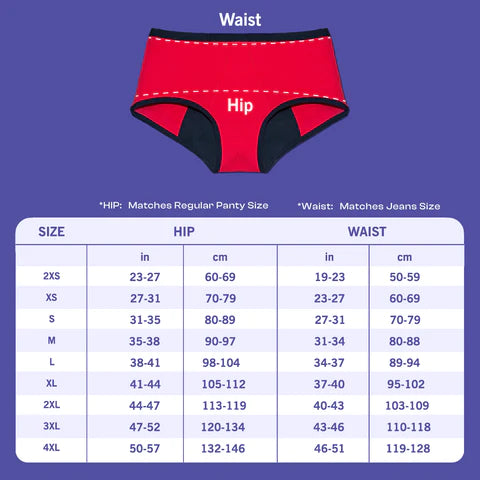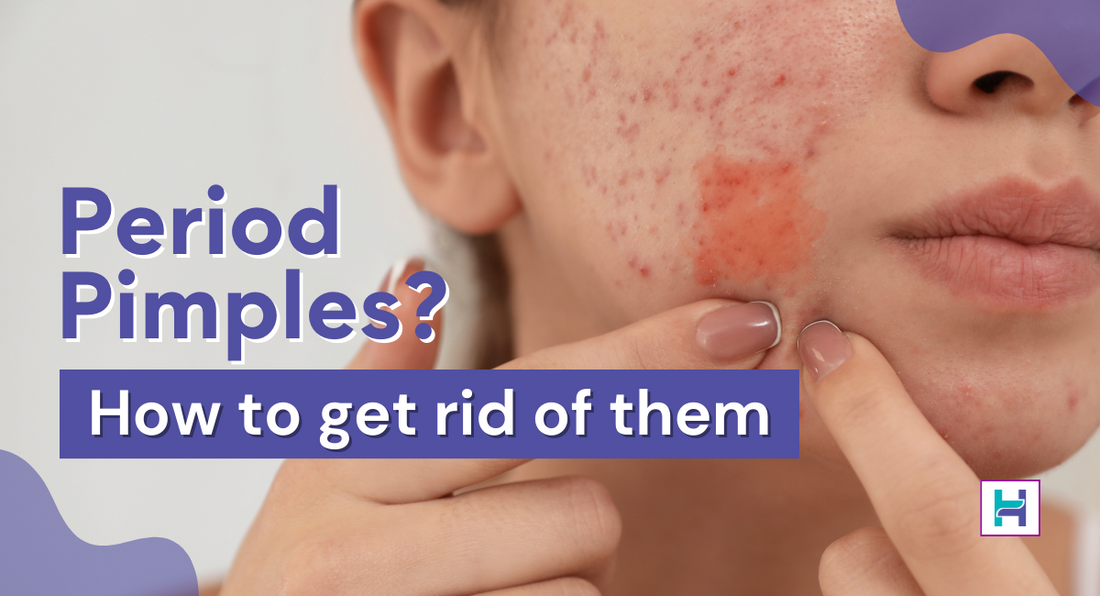Have you ever wondered why you keep getting those bothersome bumps, especially around that time of the month? We're discussing period pimples or period acne, a problem that most women have experienced but might not fully comprehend. We'll keep things straightforward in this blog post and address the query.
By the end of this blog, you'll not only know why period pimples happen but also the reasons and simple steps to get your clear, glowing skin back.
What are Period Pimples?
Menstrual acne, also known as period pimples, are those bothersome lumps that frequently show up on your face right before or during your monthly cycle. In simple terms, they are period-related breakouts of acne.
What is the relationship, then? Hormonal shifts are at the root of everything. Let's read the next section to find out what causes this.
What are the causes of Period Pimples?
Estrogen and progesterone levels fluctuate throughout your menstrual cycle, and this hormonal ballet may have an impact on your skin. Your skin produces more oil when sebaceous glands are stimulated by elevated hormone levels. Excess oil can clog pores, resulting in the production of pimples coupled with dead skin cells.
These spots usually appear on the jawline, chin, or other parts of the face. Period pimples are not common, but for those who are, they may appear a few days before the start of menstruation.
To effectively manage period pimples you require an understanding of the hormonal connection. Let's understand how to get rid of these passing guests on your skin.
Also read: Itching vagina before periods. Why?

How to get rid of period pimples?
Period pimples can be difficult to deal with, but with the appropriate information, you can efficiently manage and lessen them.
1. Consistent Skincare Routine
Keeping up a regular skincare regimen is essential to controlling period pimples. This thorough guide will assist you in creating a daily and weekly routine for your skin that is clear and healthy.
Start your morning routine with a mild cleanser that gets rid of pollutants and oil from the previous night without being too hard on your skin. After that, use an alcohol-free toner to restore pH balance to your skin and get it ready for optimal product absorption.
Using the same mild cleanser you used in the morning, begin your evening routine by removing any makeup with a micellar water solution or gentle makeup remover. This guarantees that all of the day's accumulated dirt and oil will be completely removed. Apply topical treatments such as salicylic acid or benzoyl peroxide at this point, as directed by the product's instructions. To preserve the equilibrium of your skin, reapply your non-comedogenic moisturizer in the end.
To get rid of dead skin cells, think about including light exfoliation once or twice a week in your weekly treatments. Use a gentle exfoliator to prevent inflammation.
Also read: Hibiscus Tea Benefits during periods
2. Use Non-Comedogenic Products
Selecting products that do not cause breakouts is an essential part of a skincare regimen intended to control period pimples. Non-comedogenic refers to products specifically designed to avoid blocking pores. These products are formulated to be gentle on the skin, making them less likely to cause blackheads, whiteheads, or acne breakouts.
3. Topical treatments for Skincare
Targeted topical treatments are vital for addressing period pimples effectively in your skincare regimen. You can apply benzoyl peroxide, which is well known for its ability to combat bacteria, once or twice a day to the affected regions.
Use of the mild exfoliant salicylic acid in cleansers or leave-on treatments helps avoid pore obstruction. Retinoids, which are administered at night and promote skin cell turnover, include Retin-A and Tretinoin.
Tea tree oil has inherent antimicrobial properties; use it sparingly and diluted. When used regularly, over-the-counter acne treatments that include different components provide a convenient remedy.

Please note that the above-mentioned treatments are not our recommendations but for your educational purposes only. We would suggest you consult with a dermatologist before any skin treatment.
How long do period pimples last?
Period pimples can last different lengths of time for different people. Period pimples usually start to show in the days before the menstrual cycle and can continue all the way through. Some people may only notice these pimples for a few days, while others may deal with them for a longer amount of time. These pimples are a result of hormonal changes that take place during the menstrual cycle.
When to see a doctor
If you are experiencing persistent or severe period pimples that are impacting your well-being, it may be a good idea to consult with a dermatologist.
1. Persistent Acne Breakouts: If your period pimples continue beyond your menstrual cycle and show no signs of improvement.
2. Severe Acne: If the acne is severe, characterized by deep, painful cysts or widespread inflammation.
3. Scarring: If you notice scarring or hyperpigmentation from previous acne outbreaks, especially if it affects your skin's texture or appearance.
4. Changes in Acne Patterns: If you notice a sudden change in the pattern or nature of your acne, it's essential to rule out any underlying health issues.
A dermatologist can provide a thorough assessment of your skin, identify the root causes of your acne, and recommend targeted treatments.
Also read: Best smoothie for Period cramps
In a Nutshell
Figuring out the causes of hormonal acne and putting effective solutions into practice is key to comprehending and treating period pimples. This blog strives to arm you with the knowledge to support healthier, clearer skin through topical treatments and skincare regimens. However, any skin-related concerns should be seen by a qualified dermatologist.


